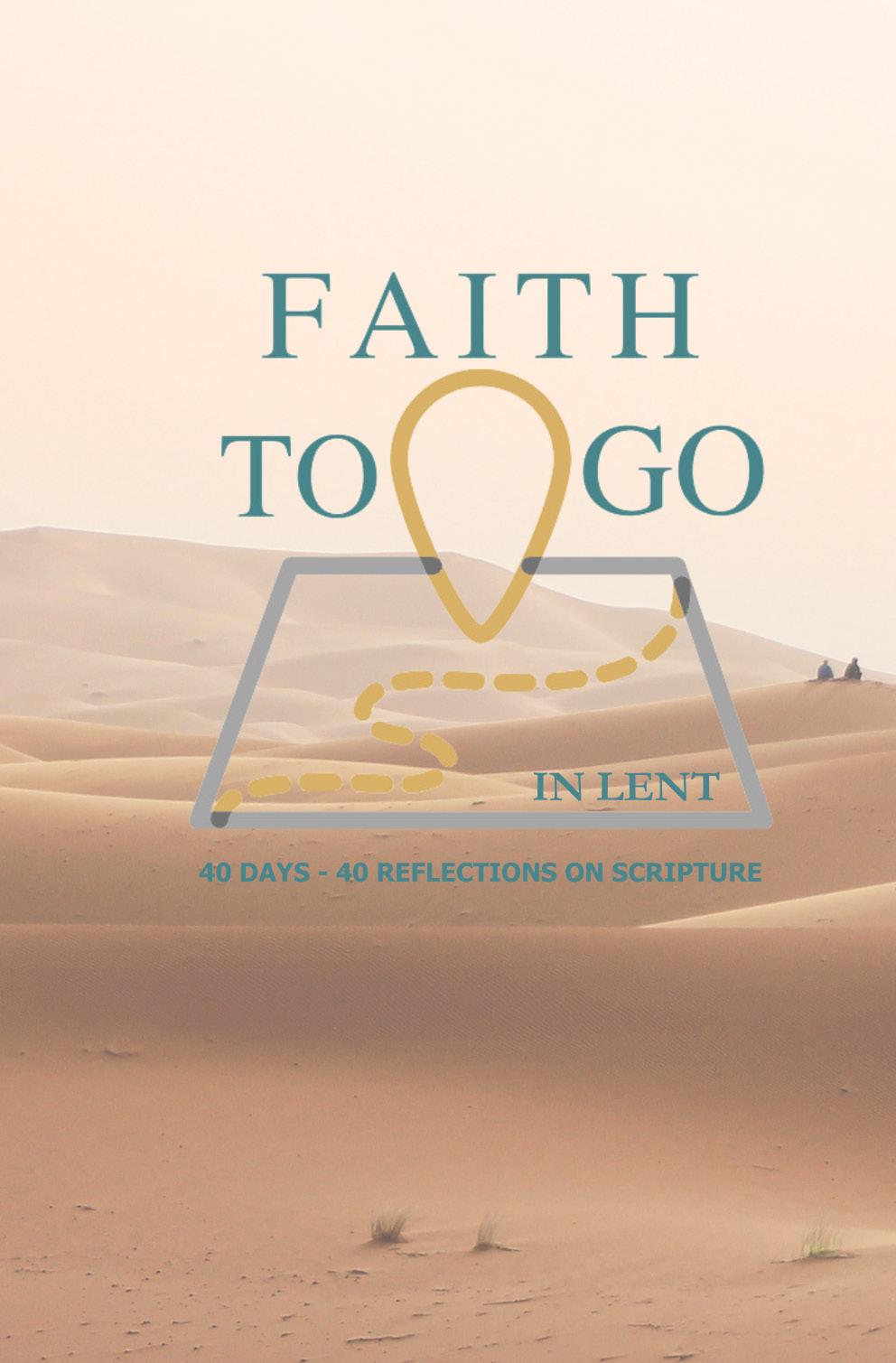

Produced by: The Episcopal Diocese of San Diego
Compiled by: Charlette Preslar, EDSD Director of Formation
Edited by: Chris Tumilty, EDSD Director of Communications
Designed by: Chris Tumilty, EDSD Director of Communications
Lent is a sacred journey—forty days of reflection as we prepare our hearts for the joy of Easter. In this Year of Discipleship, we are called to walk more closely with Christ, deepening our faith through prayer, study, and action. In this book, members of the Episcopal Diocese of San Diego—clergy and laypeople alike—offer their voices in prayerful reflection, guiding us through scripture, personal experiences, and the deep well of our shared faith. May these reflections inspire you to embrace the call of discipleship and discover God’s transforming love in this holy season.
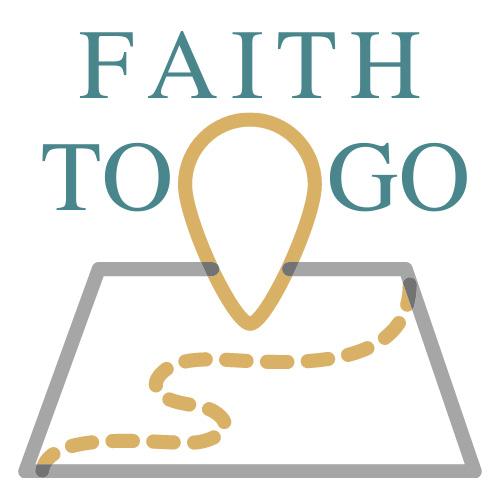
www.edsd.org/faithtogo
Day 13: Wednesday, March 19
Luke 2:41-52
Jesus said to the crowds and to his disciples, “The scribes and the Pharisees sit on Moses’ seat; therefore, do whatever they teach you and follow it; but do not do as they do, for they do not practice what they teach. They tie up heavy burdens, hard to bear, and lay them on the shoulders of others; but they themselves are unwilling to lift a finger to move them. They do all their deeds to be seen by others; for they make their phylacteries broad and their fringes long. They love to have the place of honor at banquets and the best seats in the synagogues, and to be greeted with respect in the marketplaces, and to have people call them rabbi. But you are not to be called rabbi, for you have one teacher, and you are all students. And call no one your father on earth, for you have one Father—the one in heaven. Nor are you to be called instructors, for you have one instructor, the Messiah. The greatest among you will be your servant. All who exalt themselves will be humbled, and all who humble themselves will be exalted.
One of the songs that I learned in Sunday School many moons ago, ‘Trust and Obey’ came to mind after reading this passage. During the second semester of my freshman year in college, a classmate told me to send my application for the US Navy. I thought about it but I also did not want to waste the 4-year scholarship that someone from Belgium has given me. A few weeks later, he reminded me to send the application for the window of opportunity is closing very soon. I sent the application with a prayer asking God to remove any obstacles that might stop me from joining the US Navy, if this is His will. About six months later, I was at the San Diego Naval Training Center. Today, trusting and obeying God shapes my ministry as a member of the Order of St. Luke. When there are times that God seems to ignore my prayers, I obey Jesus’ reminder in one of his parables to keep praying to God and I trust that at the right time, God will answer my prayer with what is best for me or for the person I am praying for.
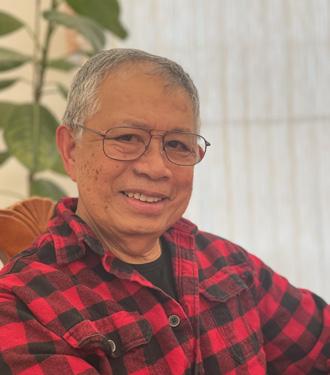
James Ambasing was born in Baguio City, Philippines. He joined the US Navy in 1971, got out and earned a BS in Business Administration (Information Systems) from San Diego State University. He is a member of The Church of the Good Shepherd, Bonita and of the Order of St. Luke, South Bay Chapter.
Day 14: Thursday, March 20
Luke 16:19-31
‘There was a rich man who was dressed in purple and fine linen and who feasted sumptuously every day. And at his gate lay a poor man named Lazarus, covered with sores, who longed to satisfy his hunger with what fell from the rich man’s table; even the dogs would come and lick his sores. The poor man died and was carried away by the angels to be with Abraham. The rich man also died and was buried. In Hades, where he was being tormented, he looked up and saw Abraham far away with Lazarus by his side. He called out, “Father Abraham, have mercy on me, and send Lazarus to dip the tip of his finger in water and cool my tongue; for I am in agony in these flames.” But Abraham said, “Child, remember that during your lifetime you received your good things, and Lazarus in like manner evil things; but now he is comforted here, and you are in agony. Besides all this, between you and us a great chasm has been fixed, so that those who might want to pass from here to you cannot do so, and no one can cross from there to us.” He said, “Then, father, I beg you to send him to my father’s house—for I have five brothers—that he may warn them, so that they will not also come into this place of torment.” Abraham replied, “They have Moses and the prophets; they should listen to them.” He said, “No, father Abraham; but if someone goes to them from the dead, they will repent.” He said to him, “If they do not listen to Moses and the prophets, neither will they be convinced even if someone rises from the dead.”’
The story centers on the reversal of fortunes that takes place after Lazarus and the rich man die. This reversal after death is ultimate. An unbridgeable chasm exists between Lazarus at Abraham’s side and the rich man in Hades. It links agony or comfort after death with how we treat the less fortunate around us. Our fate with eternal life manifests with how we treat the hungry and thirsty, strangers, the naked, the sick, and those in prison. It is the great equalizer.
The story of the rich man and Lazarus might be difficult to absorb for many North Americans. Our lifestyles stand in sharp contrast with a majority of people in the world who live on much less. Like so much else that Luke says about money and possessions, our relative prosperity stands as a stinging indictment not only of the great confidence we place in financial security, but also of the drastic inequities between rich and poor…inequities that we allow to perpetuate.
The parable in Luke chapter 16 seeks to refocus us on what we do with what we have, and if and how our vocations serve our neighbors. Virtue is not determined by wealth, type of employment, gender, immigration status, political or financial power or body type. Virtue is borne out in deeds.
Luke makes clear that the poor are a focus of Jesus’ ministry. In his inaugural sermon, Jesus declares that he has been anointed by the Spirit of the Lord “to bring good news to the poor.” Jesus admonishes his followers to not just invite to their parties the friends and neighbors who can repay them, but to extend their invitations unconditionally to the poor, the crippled, the lame, and the blind.
The parable illustrates the need to help others. This should be in our Christian nature and ways. As Christians we are accountable for the least of these in our society.
Fear of suffering after death may not be a good motivator. But compassion, vocation, stewardship, and gratitude can be. Everything to be done has already been done. We have been given all we need.
Yes…..eternal life is the true equalizer!
Day 14: Thursday, March 20
Luke 16: 19-31
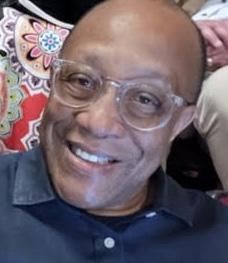
Vince Walton and his family joined St. Thomas of Canterbury in 2007 after moving to the Murrieta/ Temecula area. Originally from Cincinnati, Ohio, Vince graduated from the nationally recognized School for the Creative and Performing Arts before earning a Bachelor’s Degree in Communications from Bowling Green State University. His career has spanned pharmaceuticals, wireless communications, and telecommunications, and he now serves as a Business Strategy Consultant for Salesforce, working closely with PayPal.
Deeply committed to the Episcopal Church, Vince has served on the Bishop’s Committee for multiple terms and has contributed to various ministries, including choir, communications, and racial reconciliation programs like Sacred Ground and LARK. He has also held leadership roles as Junior and Senior Warden. Vince and his wife, Monica, have two children, Alexander and Lauren. He brings his passion for service, leadership, and faith to his work in the church and community.

Day 15: Friday, March 21
Matthew 21:33-43
“Listen to another parable. There was a landowner who planted a vineyard, put a fence around it, dug a winepress in it, and built a watchtower. Then he leased it to tenants and went away. When the harvest time had come, he sent his slaves to the tenants to collect his produce. But the tenants seized his slaves and beat one, killed another, and stoned another. Again he sent other slaves, more than the first, and they treated them in the same way. Then he sent his son to them, saying, ‘They will respect my son.’ But when the tenants saw the son, they said to themselves, ‘This is the heir; come, let us kill him and get his inheritance.’ So they seized him, threw him out of the vineyard, and killed him. Now when the owner of the vineyard comes, what will he do to those tenants?” They said to him, “He will put those wretches to a miserable death and lease the vineyard to other tenants who will give him the produce at the harvest time.”
Jesus said to them, “Have you never read in the scriptures:
‘The stone that the builders rejected has become the cornerstone; this was the Lord’s doing, and it is amazing in our eyes’?
“Therefore I tell you, the kingdom of God will be taken away from you and given to a people that produces its fruits.
When I read the lines, "the stone that the builders rejected has become the cornerstone, this was the Lord's doing, and it is marvelous in our eyes", it gives me hope. Although I know it speaks about Jesus, it reminds me that God loves the rejected. It reminds me that even when we feel the pain of being misunderstood, when we struggle to comprehend the choices people in power are making, we must persist in telling the truth. We must stand up for what is right, in order to see glimpses of the kingdom
of heaven. God calls us to do the hard work of being holy troublemakers. While we have time here on earth, we are called to work for the good for all humankind, protecting those who are rejected, marginalized, persecuted, and vulnerable.
Jesus might be aiming his words at religious leadership, but there’s a message for those not in leadership. Look to God, look to Jesus, and don’t be too enchanted or intimidated by your religious leaders. Don’t let them lay those heavy burdens upon you, while doing nothing themselves.
Last week, Charlette Preslar misread the closing line of this passage while recording Faith to Go. “All who exalt themselves shall be humbled, and all who humble themselves will be exhausted.” It’s a hilarious mistake, but also a telling one. Certainly, discipleship is not always easy, and there is often a burden to bear as we do Christ’s work in the world. We are called to do it together, called to do as Christ has taught us, called to bear each other’s burdens, and called to humble ourselves before God.
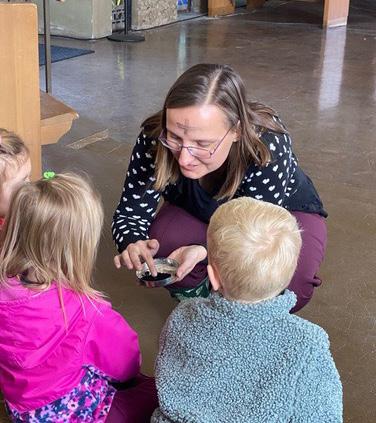
Kari Robinson has served as the Family Minister at St. Andrew’s by-the-Sea for over seven years. Her favorite parts of the job include creative art making, joyful singing, and engaging in wonder with kids of all ages. With her background in developmental psychology, preschool teaching, service work and faith formation, as well as being a devoted mom of 3, Kari is committed to being a loving presence in the lives of children and working to make the world a better place for children everywhere.
Day 16: Saturday, March 22
Luke 15:11-32
Then Jesus said, “There was a man who had two sons. The younger of them said to his father, ‘Father, give me the share of the wealth that will belong to me.’ So he divided his assets between them. A few days later the younger son gathered all he had and traveled to a distant region, and there he squandered his wealth in dissolute living. When he had spent everything, a severe famine took place throughout that region, and he began to be in need. So he went and hired himself out to one of the citizens of that region, who sent him to his fields to feed the pigs. He would gladly have filled his stomach with the pods that the pigs were eating, and no one gave him anything. But when he came to his senses he said, ‘How many of my father’s hired hands have bread enough and to spare, but here I am dying of hunger! I will get up and go to my father, and I will say to him, “Father, I have sinned against heaven and before you; I am no longer worthy to be called your son; treat me like one of your hired hands.” ’ So he set off and went to his father. But while he was still far off, his father saw him and was filled with compassion; he ran and put his arms around him and kissed him. Then the son said to him, ‘Father, I have sinned against heaven and before you; I am no longer worthy to be called your son.’ But the father said to his slaves, ‘Quickly, bring out a robe—the best one—and put it on him; put a ring on his finger and sandals on his feet. And get the fatted calf and kill it, and let us eat and celebrate, for this son of mine was dead and is alive again; he was lost and is found!’ And they began to celebrate.
“Now his elder son was in the field, and as he came and approached the house, he heard music and dancing. He called one of the slaves and asked what was going on. He replied, ‘Your brother has come, and your father has killed the fatted calf because he has got him back safe and sound.’ Then he became angry and refused to go in. His father came out and began to plead with him. But he answered his father, ‘Listen! For all these years I have been working like a slave for you, and I have
never disobeyed your command, yet you have never given me even a young goat so that I might celebrate with my friends. But when this son of yours came back, who has devoured your assets with prostitutes, you killed the fatted calf for him!’ Then the father said to him, ‘Son, you are always with me, and all that is mine is yours. But we had to celebrate and rejoice, because this brother of yours was dead and has come to life; he was lost and has been found.’ ”
Failure can be a gift. It is a funny thing, to think of failure as good, because so many of us spend so much of our lives doing everything we can to avoid it. But failure can change our lives. Yes, it is painful, but it produces clarity. Our failures make us aware of ourselves, aware of our imperfections, our needs, and our gifts. Failure snaps us out of our complacency, and forces us to be honest with ourselves.
Evelyn Underhill once referred to the story of the prodigal son as a story of “the history of the universe.” The Prodigal is blinded by desire for all the wrong things, and spurns his family to venture out into the world. But as his money runs out, his adventure ends at rock bottom, in the filth of a pig sty. So he determines to go back to his father, to ask for forgiveness and mercy. And to his surprise, as he arrives, his father runs out to meet him and embrace him—it seems that every day, he has kept watch, waiting for the day that his beloved son will return. And when that day finally comes, he is full of nothing but joy. This is how God is with us.
We all venture away from the heart of God, and it is only when we taste our failures and truly realize our need, that we journey back. The strongest faith is often built on the foundation of the greatest pain and weakness. We pick ourselves up, and we determine to beg for God’s forgiveness and mercy—and to our surprise, he rushes out to embrace us, for all is already forgiven.
Day 16: Saturday, March 22
Luke 15:11-32
Lent is a time for sober self-reflection. It is a time to bravely invite the discomfort of our failures, a time to embrace our finitude and our imperfections, to realize the ways that we have ventured away. But we do this not to beat ourselves up—we do this because this is the history of the universe: God is always waiting for us, ready as soon as we are to wrap us in loving embrace.
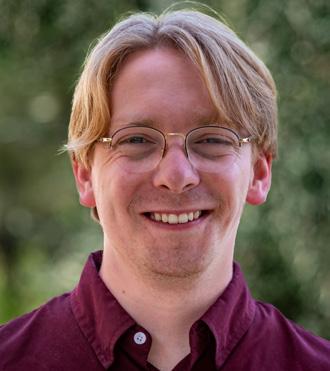
Jacob Robling is a postulant for the priesthood in the Episcopal Diocese of San Diego, and serves as the Pastoral Associate and Youth Minister at St. Bartholomew’s Episcopal Church in Poway, CA. He and his wife Emma live in Oceanside, CA with their dog, Wednesday.

Day 17: Monday, March 24
Luke 4: 23-30
He said to them, “Doubtless you will quote to me this proverb, ‘Doctor, cure yourself!’ And you will say, ‘Do here also in your hometown the things that we have heard you did at Capernaum.’ ” And he said, “Truly I tell you, no prophet is accepted in his hometown. But the truth is, there were many widows in Israel in the time of Elijah, when the heaven was shut up three years and six months and there was a severe famine over all the land, yet Elijah was sent to none of them except to a widow at Zarephath in Sidon. There were also many with a skin disease in Israel in the time of the prophet Elisha, and none of them was cleansed except Naaman the Syrian.” When they heard this, all in the synagogue were filled with rage. They got up, drove him out of the town, and led him to the brow of the hill on which their town was built, so that they might hurl him off the cliff. But he passed through the midst of them and went on his way.
“All in the synagogue were filled with rage.”
What was behind that rage. Remember, these are the hometown people with whom Jesus grew up. They know him and his family. They are also religious people with whom Jesus worshipped, prayed, and studied scriptures. And now they drive him out of town and want to “hurl him off the cliff.”
What did Jesus do or say that was so upsetting?
I thought it was because he was bringing good news to the poor, sight to the blind, because he let captives go free, and chose to stand on the side of the oppressed. He promises mercy to those in fear. That’s what he is saying has been fulfilled today in their hearing.
They “all spoke well of him and were amazed at the gracious words coming from his mouth.”
They liked what Jesus was saying, until they didn’t: until they recognized that Jesus was passing over them, his hometown people.
They see themselves as special and they are enraged when they realize that Jesus won’t play to their presumed hometown privilege and that they are being passed over. That’s what enrages them; being passed over.
Are we not like the hometown crowd, seeing ourselves as Jesus’ favorites; having some privileged status? And I can’t help but wonder if we’re not also in danger of being passed over?
Let me be clear here. I am not talking about being passed over as a rejection or punishment. I am talking about being passed over as a consequence of failing to recognize our brokenness. I am talking about the way we as a country are filled with rage. I am talking about the way we rage in our lives to disguise and compensate for what hurts inside us.
And behind our rage is a broken heart. The people in the synagogue that day were broken hearted and hurting, and they raged. And who doesn’t know what that’s like?
I suspect we rage to avoid the emptiness and hunger within us. We rage to avoid having to look at the way our flesh is rotting. We rage when our privilege is threatened. We rage so we do not have to face ourselves.
What if the only thing between us and being passed over is recognizing and naming our broken heart? And what if we could do that not only for ourselves but for each other and for the world?
I don’t know what would happen, but it could begin a different conversation. And it just might open the doors to a new way forward.
Day 17: Monday, March 24
Luke 4: 23-30
Because, regardless of who we are or where we are from, regardless of what we believe about God, country, or politics, regardless of our presumed privilege, regardless of who we see as right and who we see as wrong, if there is one thing that we all have in common, one thing that unites us, it is that we all hurt and Jesus knows that.
The poet Warsan Shire names this reality, our universal hurt, in her poem, “What They Did Yesterday Afternoon”. In the last third of the poem she writes,
“later that night I held an atlas in my lap ran my fingers across the whole world and whispered where does it hurt? it answered everywhere everywhere everywhere.”
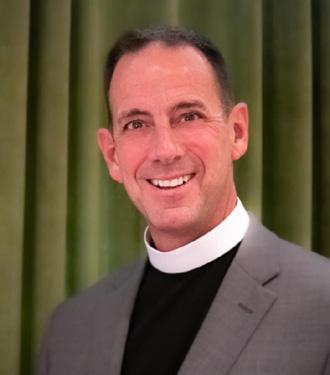
Rev. Roger Haenke has served as Rector of St. John’s, Chula Vista, since January 2020. He studied theology at St. Paul Seminary School of Divinity and was ordained a Roman Catholic priest in 1991, serving in North Dakota before transitioning to nursing. He earned a B.S. in Nursing from the University of Minnesota and worked in pediatric healthcare and academia. Received as an Episcopal priest in the Diocese of San Diego in 2017, he has served on the Executive Council and is a member of the Commission on Ministry. Rev. Roger and his husband, Cliff Berkowitz, live in San Diego’s Talmadge neighborhood with their dogs, Oliver and Cody.

Day 18: Tuesday, March 25
Luke 1: 26-38
In the sixth month the angel Gabriel was sent by God to a town in Galilee called Nazareth, to a virgin engaged to a man whose name was Joseph, of the house of David. The virgin’s name was Mary. And he came to her and said, “Greetings, favored one! The Lord is with you.”But she was much perplexed by his words and pondered what sort of greeting this might be. The angel said to her, “Do not be afraid, Mary, for you have found favor with God. And now, you will conceive in your womb and bear a son, and you will name him Jesus. He will be great and will be called the Son of the Most High, and the Lord God will give to him the throne of his ancestor David. He will reign over the house of Jacob forever, and of his kingdom there will be no end.” Mary said to the angel, “How can this be, since I am a virgin?” The angel said to her, “The Holy Spirit will come upon you, and the power of the Most High will overshadow you; therefore the child to be born will be holy; he will be called Son of God. And now, your relative Elizabeth in her old age has also conceived a son, and this is the sixth month for her who was said to be barren. For nothing will be impossible with God.” Then Mary said, “Here am I, the servant of the Lord; let it be with me according to your word.” Then the angel departed from her.
Ew. Shields up! The way Luke tells it, Mary did not feel comfortable around Gabriel. Frankly, the image of a stranger approaching a young girl at all, much less creeping her out, gives this 21st century Martha “High Alert Mama Bear Vibes” too. Nevermind this talk about future pregnancy!
My discomfort on Mary’s behalf feels like protectiveness, a sisterly pragmatism, self-defense 101, except… Mary was not attacked and the result was our salvation, so what exactly would I protect her from? Certainly not a life without hardship– Mary endured plenty– and not a life without children– Mark 6:3 suggests she bore at least 6 others – but a life without… Jesus?
My wife and I met as teenagers in church choir, so Jesus literally made our family possible. Our life together has not always been comfortable or safe, but it has been good. What sort of life would you have now, had Jesus never been part of it? I daresay you wouldn’t be listening to this podcast without Christ or His Church drawing us together.
As I write this reflection, I’m also writing music based on this Scripture for the 2025 VBS curriculum. In pondering what to say to kids about this lesson and what message I hope they internalize as they sing this New Song, I’ve been toying with an ominous-sounding minor key and a refrain that ends with: “When something good is coming soon… SAY YES!”
Yet that discomfort and protectiveness sneaks back in: how does one know it’s good? Not all messages are from God, and plenty would speak in God’s name to our detriment. How do faithful people discern the trustworthy from the Trickster?
The spam caller uses threats and scare tactics. Gabriel says, “Do not be Afraid.”
The spiritual charlatan demands resources, urgently, in a purely transactional way: your money now for eternal rewards later! Gabriel seems to say, “Well, now and… not now. Look back six months. Look to people you know. See the miracles already begun and unfolding in their lives? The benefits of this New Creation start in your lifetime, among your relationships, and will extend far beyond.” Okay, I can let that be.
Day 18: Tuesday, March 25
Luke 1: 26-38
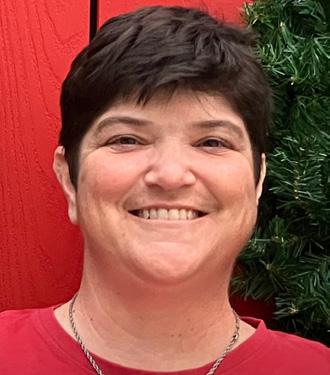
Martha Schattman has been Music Minister at Grace Episcopal Church, San Marcos since 2014, and is the mother of a 5th grader. She has performed with the Diocesan band at the Good News Fest and Diocesan Convention, compiled musicfor Diocesan VBS curricula, and was recruited to write and record an original song for the Courageous Love Campaign (“Love Be The Reason”).

Day 19: Wednesday, March 26
Matthew 5:17-19
“Do not think that I have come to abolish the Law or the Prophets; I have come not to abolish but to fulfill. For truly I tell you, until heaven and earth pass away, not one letter,not one stroke of a letter, will pass from the law until all is accomplished. Therefore, whoever breaks one of the least of these commandments and teaches others to do the same will be called least in the kingdom of heaven, but whoever does them and teaches them will be called great in the kingdom of heaven.
In today’s Gospel (Matthew 5:17-19), Jesus tells us that He has not come to abolish the law but to fulfill it. His words remind us that God’s truth is not about rigid legalism but about love, service, and drawing near to both God and one another. Yet, throughout history, scripture has too often been misused as a tool for exclusion, judgment, and control. Words meant to bring life have been twisted to justify prejudice, to create divisions, and to determine who is “worthy” of belonging.
But when I read the Gospels, I see a Jesus who turns these distortions on their head. I meet a Jesus who crosses boundaries, who dines with tax collectors and sinners, who lifts the broken and heals the wounded. His ministry was never about enforcing rules for the sake of rules—it was about restoring people, calling them into deeper relationship with God, and revealing a love that knows no limits.
Too often, faith becomes focused on doctrine and dogma over the deeper call to love. But Jesus did not come to burden us with more laws; He came to show us what it truly means to live them out. To fulfill the law, as Jesus did, is to love God and to love our neighbor—not just those who look like us, think like us, or worship like us, but every neighbor, especially those whom the world has cast aside. Jesus invites us not into a faith of rules and restrictions, but into a faith of relationship, restoration, joy, and radical inclusion. This Lent, may we have the courage to follow Him in that calling.
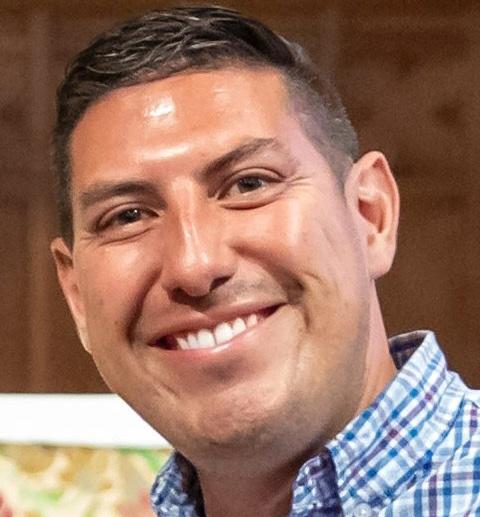
Angel Ibarra (he/him) is an active member of St. Paul’s Episcopal Cathedral, serving on Chapter, volunteering with Showers of Blessings, and ushering. Passionate about faith-based advocacy, he works to strengthen communities through service and collaboration.
He holds a Master’s in Peace and Justice from the University of San Diego, a Master’s in Education from St. Joseph’s University, and a Bachelor’s in Politics from The Catholic University of America. As chair of the USD Pride Alumni Network, he fosters inclusivity and leadership among alumni.
Angel is the Community Engagement Specialist for the City of Chula Vista’s Department of Housing and Homelessness Services, where he builds connections and supports initiatives addressing housing challenges.
Day 20: Thursday, March 27
Luke 11: 14-23
Now he was casting out a demon that was mute; when the demon had gone out, the one who had been mute spoke, and the crowds were amazed. But some of them said, “He casts out demons by Beelzebul, the ruler of the demons.” Others, to test him, kept demanding from him a sign from heaven. But he knew what they were thinking and said to them, “Every kingdom divided against itself is laid waste, and a divided household falls. If Satan also is divided against himself, how will his kingdom stand?— for you say that I cast out the demons by Beelzebul. Now if I cast out the demons by Beelzebul, by whom do your exorcistsbcast them out? Therefore they will be your judges. But if it is by the finger of God that I cast out the demons, then the kingdom of God has come upon you. When a strong man, fully armed, guards his castle, his property is safe. But when one stronger than he attacks him and overpowers him, he takes away his armor in which he trusted and divides his plunder. Whoever is not with me is against me, and whoever does not gather with me scatters.
Lent offers a wonderful opportunity for spiritual reflection, particularly through the lens of Luke 11:14-23, where Jesus confronts the forces that are in opposition to him. In this passage, we witness a powerful demonstration of His authority as He casts out a demon, prompting a dialogue about the nature of His power and the kingdom of God. As we journey through Lent, we are called to examine the areas where we may be harboring shadows, whether they be doubts, fears, or unconfessed sins.
Jesus emphasizes that a kingdom divided against itself cannot stand, urging us to reflect on our internal conflicts. Are we fully aligned with the values of the kingdom, or do we allow distractions and temptations to lead us astray? This season encourages us to seek reconciliation and unity within ourselves and with others. By engaging in prayer, fasting, and acts of charity, we can actively participate in the work of the Holy Spirit, driving out the darkness that seeks to take root in our hearts. Ultimately,
this passage serves as a reminder that through Christ, we have the power to overcome evil and embrace the transformative love of God, leading us toward a deeper relationship with Him as we prepare for the celebration of Easter.
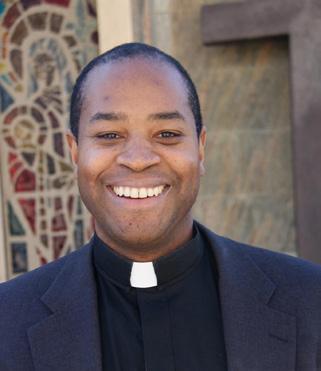
Rev. Ken Simon, a San Diego native, earned a Bachelor of Arts in Psychology from the University of San Diego in 1996. After working in nonprofit organizations, he felt called to ministry and obtained a Master of Divinity from Fuller Theological Seminary in 2003. He later earned a Certificate in Anglican Studies from the Church Divinity School of the Pacific in 2008 and was ordained a transitional deacon in 2009, serving at Christ Church, Coronado.
Following his ordination to the priesthood, Rev. Simon served in various roles across the Diocese of San Diego, including Assistant Rector at St. Dunstan’s, Associate Rector at St. Michael’s By The Sea, Priest in Charge at St. Stephen’s Menifee, and Interim Rector at Trinity Escondido. Since 2023, he has been Priest in Charge at St. Andrew’s La Mesa. Passionate about ministry, he enjoys music, gardening, and basketball. With over 15 years of service, he remains dedicated to the diocese and its mission.






